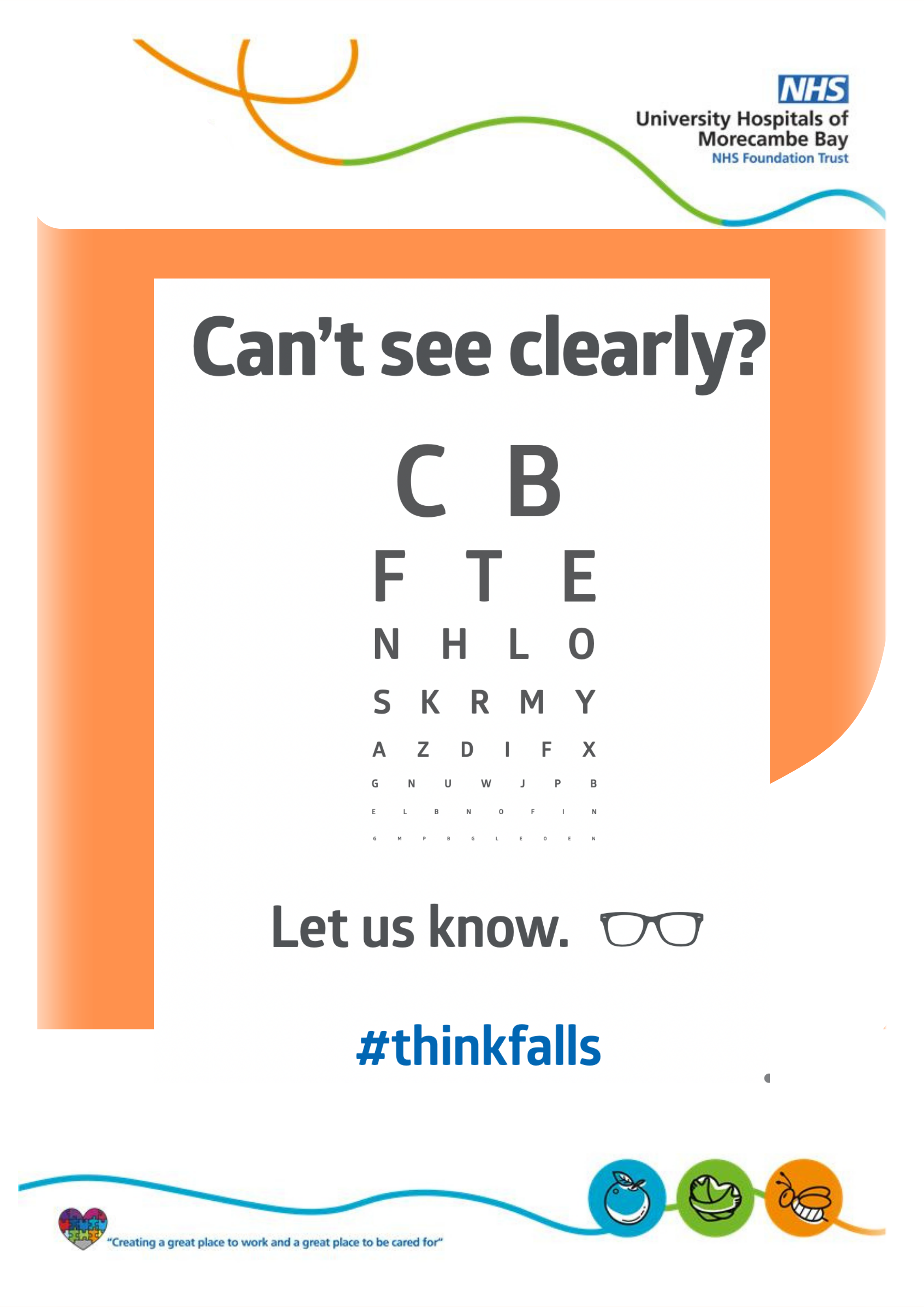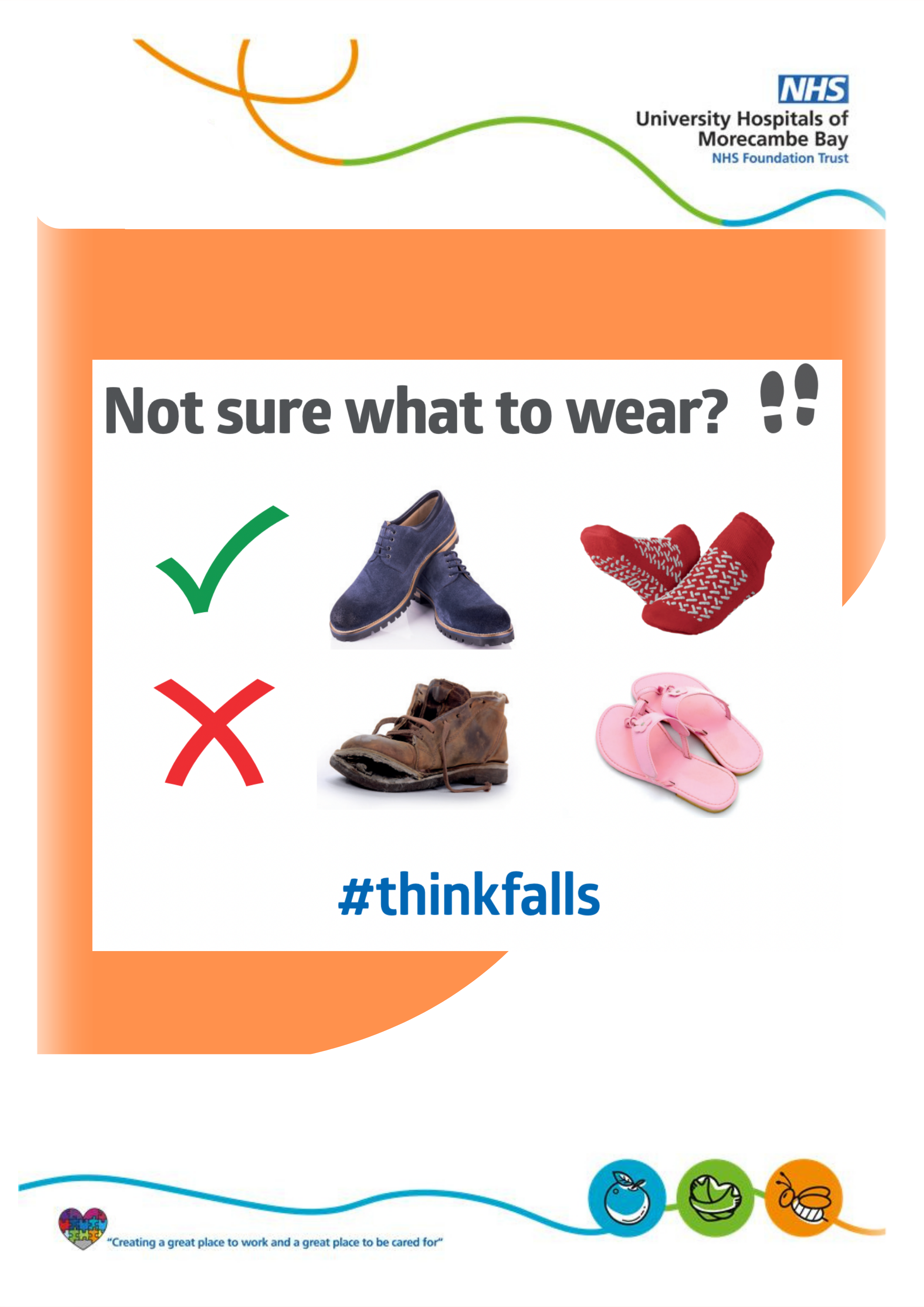 What should I do if I fall?
What should I do if I fall?
- If you have a fall, it's important to keep calm. If you're not hurt and you feel strong enough to get up, do not get up quickly.
- Roll onto your hands and knees and look for a stable piece of furniture, such as a chair or bed.
- Hold on to the furniture with both hands to support yourself and, when you feel ready, slowly get up. Sit down and rest for a while before carrying on with your daily activities.
- If you're hurt or unable to get up, try to get someone's attention by calling out for help, banging on the wall or floor, or using your personal alarm or security system (if you have one). If possible, crawl to a telephone and dial 999 to ask for an ambulance.
- Try to reach something warm, such as a blanket or dressing gown, to put over you, particularly your legs and feet.
- Stay as comfortable as possible and try to change your position at least once every half an hour or so.
- You may want to get a personal alarm system so that you can signal for help in the event of a fall.
- An alternative would be to always keep a mobile phone in your pocket so you can phone for help after having a fall.
- If you're living with or caring for an elderly person, read what to do after an incident.
 What causes a fall?
What causes a fall?
- The natural ageing process means that older people have an increased risk of having a fall.
- Older people are more likely to have a fall because they may have:
- Balance problems and muscle weakness
- Vision loss
- A long-term health condition, such as heart disease, dementia or low blood pressure (hypotension), which can lead to dizziness and a brief loss of consciousness
A fall is also more likely to happen if:
- Floors are wet, such as in the bathroom, or recently polished
- The lighting in the room is dim
- Rugs or carpets are not properly secured
- The person reaches for storage areas, such as a cupboard, or is going down stairs
- The person is rushing to get to the toilet during the day or at night
- Another common cause of falls, particularly among older men, is falling from a ladder while carrying out home maintenance work.
- In older people, falls can be particularly problematic because osteoporosis is a fairly common problem.
- It can develop in both men and women, particularly in people who smoke, drink excessive amounts of alcohol, take steroid medicine, or have a family history of hip fractures.
- But older women are most at risk because osteoporosis is often associated with the hormonal changes that occur during the menopause.
 Preventing a fall
Preventing a fall
There are several simple measures that can help prevent falls in the home.
- For example:
- Using non-slip mats in the bathroom
- Mopping up spills to prevent wet, slippery floors
- Ensuring all rooms, passages and staircases are well lit
- Removing clutter
- Getting help lifting or moving items that are heavy or difficult to lift
Support
Healthcare professionals take falls in older people very seriously because of the huge consequences they can have for the health and wellbeing of this group.
As a result, there's a great deal of help and support available for older people, and it's worth asking a GP about the various options.
The GP may carry out some simple tests to check your balance. They can also review any medicines you're taking in case their side effects may increase your risk of falling.
 The GP may also recommend:
The GP may also recommend:
- Looking after your eyes with a sight test if you're having problems with your vision, even if you already wear glasses
- Having an electrocardiogram (ECG) and checking your blood pressure while lying and standing
- Requesting a home hazard assessment, where a healthcare professional visits your home to identify potential hazards and give advice
- Doing exercises to improve your strength and balance (read about physical activity guidelines for older adults).
What you can do
There are ways you can reduce your risk of having a fall, including making simple changes to your home and doing exercises to improve your strength and balance.
If you have fallen in the past, making changes to reduce your chances of having a fall can also help you overcome any fear of falling.
Some older people may be reluctant to seek help and advice from a GP and other support services about preventing falls because they believe their concerns will not be taken seriously.
But all healthcare professionals take falls in older people very seriously because of the significant impact they can have on a person's health.
Discuss any falls you have had with a GP and say if it's had any impact on your health and wellbeing.
The GP can carry out some simple balance tests to check whether you're at an increased risk of falling in the future. They can also refer you to useful services in your local area.
 Avoiding falls at home - Tips for preventing falls in the home include:
Avoiding falls at home - Tips for preventing falls in the home include:
- Immediately mopping up spillages
- Removing clutter, trailing wires and frayed carpet
- Using non-slip mats and rugs
- Making sure all rooms, passages and staircases are well lit
- Organising your home so that climbing, stretching and bending are kept to a minimum, and to avoid bumping into things
- Getting help to do things you're unable to do safely on your own
- Not walking on slippery floors in socks or tights
- Not wearing loose-fitting, trailing clothes that might trip you up
- Wearing well-fitting shoes that are in good condition and support the ankle
- Taking care of your feet by trimming your toenails regularly and seeing a GP or podiatrist (foot health professional) about any foot problems
- Strength and balance training
- Doing regular strength exercises and balance exercises can improve your strength and balance, and reduce your risk of having a fall. This can take the form of simple activities such as walking and dancing, or specialist training programmes.
 Many community centres and local gyms offer specialist training programmes for older people. Exercises that can be carried out at home are also available. Ask a GP about training programmes in your area.
Many community centres and local gyms offer specialist training programmes for older people. Exercises that can be carried out at home are also available. Ask a GP about training programmes in your area.
It's important that a strength and balance training programme is tailored to the individual and monitored by an appropriately trained professional. There's also evidence that taking part in regular tai chi sessions can reduce the risk of falls. Tai chi is a Chinese martial art that places particular emphasis on movement, balance and co-ordination. Unlike other martial arts, tai chi does not involve physical contact or rapid physical movements, making it an ideal activity for older people.
Sight tests
Look after your eyes and make an appointment to have a sight test if you're concerned that vision loss (even when wearing glasses) is increasing your risk of having a fall.
Find an optician near you
Not all vision problems can be cured, but some problems can be treated with surgery – for example, cataracts can be removed using cataract surgery.
Alcohol
Drinking alcohol can lead to loss of co-ordination and exaggerate the effects of some medicines. This can significantly increase the risk of a fall, particularly in older people.
Avoiding alcohol or reducing the amount you drink can reduce your risk of having a fall. Excessive drinking can also contribute to the development of osteoporosis.
Age UK has lots of very useful information on falls here: https://www.ageuk.org.uk/information-advice/health-wellbeing/exercise/falls-prevention/

